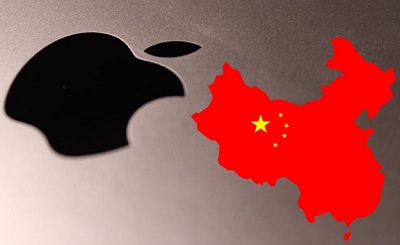The tech manufacturer has seen considerable challenges in the country, but it appears to be making headway.
While Apple has struggled to take hold in mobile commerce in China, a highly desirable market, the latest figures are starting to indicate that the manufacturer is starting to find it increasingly easy to sell its iOS based devices within this most populated country in the world.
A recent report from Bloomberg has revealed that Apple is opening many new retail shops in China.
Though this has not necessarily been officially announced, the mobile commerce news has shown that Apple has been hiring a massive new crew of managers in order to be able to provide the various locations with staff. So far, it appears as though there will be six new Apple stores in the works to one day open their doors in various places across China.
The hiring to enhance this mobile commerce experience is occurring in six Chinese cities.
 It is therefore assumed that there will be one Apple store placed in each of those various urban areas. The hiring is for outlets that will be located in Shenyang, Chongqing, Hangzhou, Zhengzhou, Wuxi, and Tianjin.
It is therefore assumed that there will be one Apple store placed in each of those various urban areas. The hiring is for outlets that will be located in Shenyang, Chongqing, Hangzhou, Zhengzhou, Wuxi, and Tianjin.
At the moment, none of those cities have an Apple retail store location, which makes it appear even more evident that any hiring that will occur there will be for a shop that will be opening its doors in the future, as it cannot be for one that is already in existence. Another indicator that has been suggesting that the stores will be coming soon is that there is another iPhone anticipated before the end of the year. In fact, the majority of the mobile technology industry is in relative agreement that it will be launched by this fall.
That said, while it is quite likely that Apple retail stores will be opening in those Chinese cities in order to take advantage of the mobile commerce opportunity of having more shops in this massively populated country once the iPhone 6 is released, that also has not been confirmed by any official sources. Equally, it would make the spread of the devices in China much easier for the country if the doors were open in time.
The publishing company has now withdrawn from an ebook partnership with the tech giant.
An agreement has recently been reached between Penguin, the book publisher, and the European Commission, which brought an antitrust probe against the company to completion and applied a number of mobile commerce regulations.
The result was that Penguin would not be able to enter into certain specific types of partnerships.
Primarily the legislative arm of the E.U. gave its approval to the conditions that state that Penguin would not be able to enter into any agreements that would give it the power to establish the prices on the ebook titles being sold, instead of a retailer. One of the results of this new regulation is that a mobile commerce deal between the publisher and Apple was forced to disintegrate.
The mobile commerce “most favored nation” agreement between Apple and Penguin has had to end.
 Within that mobile commerce plan, Apple allowed publishers to decide on the pricing that would be used for the sale of ebooks on its market, provided that they did not sell the same titles through another retailer for a lower price.
Within that mobile commerce plan, Apple allowed publishers to decide on the pricing that would be used for the sale of ebooks on its market, provided that they did not sell the same titles through another retailer for a lower price.
Previously, Apple and major book publishing companies had come to an “agency model” agreement for establishing the pricing for the electronic titles being sold over its marketplaces. That was a step away from the traditional “wholesale model” that is used by the majority of online and mobile commerce sellers, such as Amazon, where retailers were given the opportunity to resell ebooks for whatever price they wanted, including at or below cost.
Therefore, it did not come as much of a surprise that this strategy from Apple for ebook selling would subject it to considerable pressure and scrutiny in the European Union as well as in the United States.
Apple had to defend itself in a massive mobile commerce antitrust lawsuit from the United States Department of Justice. It lost that case earlier this year. The American judge determined that Apple was conspiring with book publishers to increase ebook prices. Though the wireless device manufacturer did appeal the American court’s decision, should the current ruling hold, the company may be required to pay damages worth almost $500 million.
 It is therefore assumed that there will be one Apple store placed in each of those various urban areas. The hiring is for outlets that will be located in Shenyang, Chongqing, Hangzhou, Zhengzhou, Wuxi, and Tianjin.
It is therefore assumed that there will be one Apple store placed in each of those various urban areas. The hiring is for outlets that will be located in Shenyang, Chongqing, Hangzhou, Zhengzhou, Wuxi, and Tianjin.
 Within that mobile commerce plan, Apple allowed publishers to decide on the pricing that would be used for the sale of ebooks on its market, provided that they did not sell the same titles through another retailer for a lower price.
Within that mobile commerce plan, Apple allowed publishers to decide on the pricing that would be used for the sale of ebooks on its market, provided that they did not sell the same titles through another retailer for a lower price.